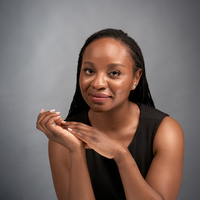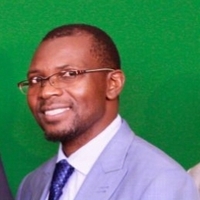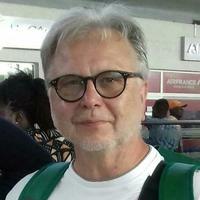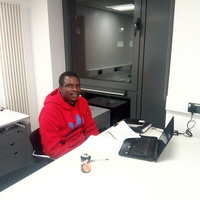
Tinashe Dune
Dr Tinashe Dune’s research, teaching and publications focus on sexual marginalization and health inequities. Namely she explores the phenomenological experiences of sexuality, sexual health, sexual wellbeing and cross-cultural understandings of sexuality in marginalised populations (i.e., GLBTIQ people, ageing populations, people with disabilities, women’s health, African women, Indigenous women). Her academic pursuits and interests are supported by several years of hands-on community outreach work. For instance, she has dedicated herself to the Sex Worker Outreach Program (SWOP) in Sydney and made trips to Western Australia and Queensland to provide support to sex workers from various backgrounds. Tinashe has also been a Disability Support Worker for several years in Canada for students attending Carleton University with physical disabiility. Tinashe has also interned at the World Health Organization in Geneva, Switzerland with the Violence, Injury and Disability and Reproductive Health Research Units. She also functions as an Honorary Research Associate for the Collaborative Research Network Mental Health and Well-being (funded by the Department of Education Employment and Workplace Relations) at the University of New England and has been an Honorary Research Associate for Australian ICF Disability and Rehabilitation Research Program (AIDARRP) at the University of Sydney. Tinashe also co-founded and acted as Collaborative Research Liaison Officer for the Regional Research in Intersexuality, Gender, Human rights, Trans*issues and Sexualities (RRIGHTS) at the University of New England.
At the University of Western Sydney Tinashe is an active member of the University of Western Sydney’s Ally Network which is a group of staff and students who are committed to creating an inclusive and respectful culture at UWS for lesbian, gay, bisexual, transgender, intersex and queer (LGBTIQ) community members. Tinashe has received funding for three research projects where she was lead investigator and has worked with key colleagues in the field of sexuality and diversity on the execution and preparation of nationally funded research projects. Tinashe has used one of her funded research projects to connect with the Oorala Aboriginal Centre, Family Planning Queensland and North Coast Aboriginal Corporation for Community Health in order to translate research from the academy to the community. Since completing her PhD in 2011 she has published a multitude of books, book chapters, peer-reviewed journal articles and presented at conferences. She also led a group of fellow academics towards the collaborative development of a Massive Open Online Course (MOOC) entitled "Sexuality-Based Prejudice and Discrimination". This course features significant materials on issues of sexuality, sexual orientation, gender identity, intersex status, prejudice and queer pride.
Tinashe has extensive experience in qualitative and mixed methods research methods and methodology. As such, her expertise in analyzing qualitative data and interpreting them in relation to quantitative findings shows the value of her methodological duality to social research.
NB: Please see CV and or visit http://www.researchgate.net/profile/Tinashe_Dune
Address: University of Western Sydney
Locked Bag 1797
Penrith NSW 2751
Australia
At the University of Western Sydney Tinashe is an active member of the University of Western Sydney’s Ally Network which is a group of staff and students who are committed to creating an inclusive and respectful culture at UWS for lesbian, gay, bisexual, transgender, intersex and queer (LGBTIQ) community members. Tinashe has received funding for three research projects where she was lead investigator and has worked with key colleagues in the field of sexuality and diversity on the execution and preparation of nationally funded research projects. Tinashe has used one of her funded research projects to connect with the Oorala Aboriginal Centre, Family Planning Queensland and North Coast Aboriginal Corporation for Community Health in order to translate research from the academy to the community. Since completing her PhD in 2011 she has published a multitude of books, book chapters, peer-reviewed journal articles and presented at conferences. She also led a group of fellow academics towards the collaborative development of a Massive Open Online Course (MOOC) entitled "Sexuality-Based Prejudice and Discrimination". This course features significant materials on issues of sexuality, sexual orientation, gender identity, intersex status, prejudice and queer pride.
Tinashe has extensive experience in qualitative and mixed methods research methods and methodology. As such, her expertise in analyzing qualitative data and interpreting them in relation to quantitative findings shows the value of her methodological duality to social research.
NB: Please see CV and or visit http://www.researchgate.net/profile/Tinashe_Dune
Address: University of Western Sydney
Locked Bag 1797
Penrith NSW 2751
Australia
less
Related Authors
Enock Mandizadza
University of Zimbabwe
Wendy Urban-Mead
Bard College
phillip musoni
Zimbabwe Ezekiel Guti University
BiAS Series
Bamberg University
Joachim Kuegler
Otto-Friedrich University Bamberg
vengesai chimininge
Zimbabwe Open University
InterestsView All (13)





Uploads
Papers by Tinashe Dune
processes of urbanisation and industrialisation, has
tended to locate certain social concerns, such as mental
health, as being largely urban phenomena or ignore the
broader spatial dynamics which impact on such phenomena.
Mental wellness of people living in rural regions of
Australia is of vital sociological concern. Rural regions
depend on a diversity of healthy, positive citizens to work
and contribute to communities long into their lives. The
reality is the opposite, with studies across Australia finding
people living in rural regions and remote areas to
be generally of poorer health than those in urban areas.
While the prevalence of mental health disorders is similar
between urban and rural, there is excessive mortality
in rural areas from mental health disorders, mainly due
to suicide. Australian statistics indicate avoidable deaths,
including those with links to mental health, continue to
be high in outer regional and remote areas. Further, access
to effective healthcare appears to have deteriorated
in some regions.
Cultural competency is an important attribute of all health professionals. At the University of Western Sydney,
allied health students are educated about cultural, social and sexual diversity via face-to-face lectures and
tutorials within an interprofessional education (IPE) setting in a unit called Culture, Diversity and Health.
Purpose/Objectives
Our aim is to assess, within an IPE setting, if learning activities, which encourage reflexivity, can positively
impact on students’ perceptions of cultural competency, professional capacity and IPE. To this end, we are
applying pedagogical and sociological theories on reflexivity to a learning activity scaffolded across lectures
and tutorials in Culture, Diversity and Health. In lectures (n=750+ across two campuses), we are showing five
(3-5 minute long) videos featuring individuals living in the greater Sydney region living with disability from a
range and combination of cultural, social and sexual backgrounds. In tutorials, we are asking students to roleplay
as interprofessional teams in a supervised setting.
Issues/Questions for exploration or ideas for discussion
We will analyse, within a realistic evaluation framework, the impact of the reflexivity teaching exercise on
students’ perceptions using validated close-ended Likert scales and open-ended questions. During tutorials
students will be given questionnaires that gauge their perceived cultural competency, professional capacity
and experience of IPE.
Results
In our presentation, we will present preliminary analyses and implications for future innovations into this
under-researched area of health professional education.
In the end, our discussion of ‘dress’ in this paper is about more than just clothing, or ‘fashion’, or even the social meaning of dress, it is about body politics: how the Shona woman’s body is regulated, managed and socially inscribed through dress. It is also about how dress is used as a contestation and subversion of some of the gender-scripts of “proper” Shona womanhood when they are expected to re/negotiate their sexual and gender identity in the ‘new’ diaspora.
taught children and adolescents morality and socially acceptable behaviours. In
particular, fairytales and folklore propagate ideals about the ways in which female
characters should best behave, and the ways in which others interact with them. On
the one hand, women who were perceived to enact the correct behaviours were
rewarded with marriage and motherhood. On the other hand, women who deviated
from such behaviours were relegated to spinsterhood or witchery. There is
underlying assumption that women are not only seeking to have their bodies
inscribed by heterosexual sex, marriage and motherhood but that this is their only
reward. They cannot be the heroes; they are always and simply a prize. Our aim
here is to make sense of how fairytales and folklore construct a values system
where a woman’s worth and place within a society is based on the type of sexuality
she is attributed. Considering the enduring nature of fairytales and folklore,
deconstructing the ways in which they portray women, and their bodies, over time
is important to problematising the assumptions that women should – be virgins, get
married and become mothers. It problematises the fact that women have to be
obedient, and require men, in order to be of societal value, to exist – without
which, women are banished and exiled. We attempt here to demonstrate that such
enduring representations, well into the twenty-first century, have tangible
implications for women’s wellbeing – mental, physical and sexual. Within a
multidisciplinary and cross-cultural frame, we will examine the following aspects:
1. Marriage as ‘happily-ever-after’ in European fairytales; 2. Shona-Zimbabwean
folklore and labia-pulling; 3. Virginity-testing and South African folklore; and 4.
‘Realistically’-ever-after in Zimbabwean folklore.
processes of urbanisation and industrialisation, has
tended to locate certain social concerns, such as mental
health, as being largely urban phenomena or ignore the
broader spatial dynamics which impact on such phenomena.
Mental wellness of people living in rural regions of
Australia is of vital sociological concern. Rural regions
depend on a diversity of healthy, positive citizens to work
and contribute to communities long into their lives. The
reality is the opposite, with studies across Australia finding
people living in rural regions and remote areas to
be generally of poorer health than those in urban areas.
While the prevalence of mental health disorders is similar
between urban and rural, there is excessive mortality
in rural areas from mental health disorders, mainly due
to suicide. Australian statistics indicate avoidable deaths,
including those with links to mental health, continue to
be high in outer regional and remote areas. Further, access
to effective healthcare appears to have deteriorated
in some regions.
Cultural competency is an important attribute of all health professionals. At the University of Western Sydney,
allied health students are educated about cultural, social and sexual diversity via face-to-face lectures and
tutorials within an interprofessional education (IPE) setting in a unit called Culture, Diversity and Health.
Purpose/Objectives
Our aim is to assess, within an IPE setting, if learning activities, which encourage reflexivity, can positively
impact on students’ perceptions of cultural competency, professional capacity and IPE. To this end, we are
applying pedagogical and sociological theories on reflexivity to a learning activity scaffolded across lectures
and tutorials in Culture, Diversity and Health. In lectures (n=750+ across two campuses), we are showing five
(3-5 minute long) videos featuring individuals living in the greater Sydney region living with disability from a
range and combination of cultural, social and sexual backgrounds. In tutorials, we are asking students to roleplay
as interprofessional teams in a supervised setting.
Issues/Questions for exploration or ideas for discussion
We will analyse, within a realistic evaluation framework, the impact of the reflexivity teaching exercise on
students’ perceptions using validated close-ended Likert scales and open-ended questions. During tutorials
students will be given questionnaires that gauge their perceived cultural competency, professional capacity
and experience of IPE.
Results
In our presentation, we will present preliminary analyses and implications for future innovations into this
under-researched area of health professional education.
In the end, our discussion of ‘dress’ in this paper is about more than just clothing, or ‘fashion’, or even the social meaning of dress, it is about body politics: how the Shona woman’s body is regulated, managed and socially inscribed through dress. It is also about how dress is used as a contestation and subversion of some of the gender-scripts of “proper” Shona womanhood when they are expected to re/negotiate their sexual and gender identity in the ‘new’ diaspora.
taught children and adolescents morality and socially acceptable behaviours. In
particular, fairytales and folklore propagate ideals about the ways in which female
characters should best behave, and the ways in which others interact with them. On
the one hand, women who were perceived to enact the correct behaviours were
rewarded with marriage and motherhood. On the other hand, women who deviated
from such behaviours were relegated to spinsterhood or witchery. There is
underlying assumption that women are not only seeking to have their bodies
inscribed by heterosexual sex, marriage and motherhood but that this is their only
reward. They cannot be the heroes; they are always and simply a prize. Our aim
here is to make sense of how fairytales and folklore construct a values system
where a woman’s worth and place within a society is based on the type of sexuality
she is attributed. Considering the enduring nature of fairytales and folklore,
deconstructing the ways in which they portray women, and their bodies, over time
is important to problematising the assumptions that women should – be virgins, get
married and become mothers. It problematises the fact that women have to be
obedient, and require men, in order to be of societal value, to exist – without
which, women are banished and exiled. We attempt here to demonstrate that such
enduring representations, well into the twenty-first century, have tangible
implications for women’s wellbeing – mental, physical and sexual. Within a
multidisciplinary and cross-cultural frame, we will examine the following aspects:
1. Marriage as ‘happily-ever-after’ in European fairytales; 2. Shona-Zimbabwean
folklore and labia-pulling; 3. Virginity-testing and South African folklore; and 4.
‘Realistically’-ever-after in Zimbabwean folklore.